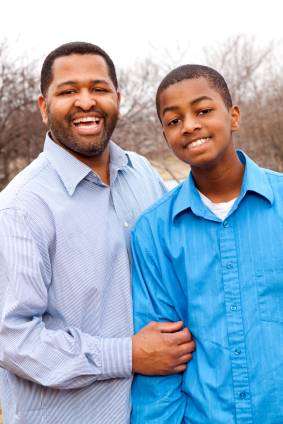|
|
March 1, 2010
By Carmen Alisa Sweeney-Rios
Carmen Alisa Sweeney-Rios became a single mom at 16. After a second teen pregnancy and a battle with depression for most of her teen and adult life, she dug deep to find answers. Now recovered from depression, married and the mom of six sons, Carmen shares her journey along with the stories of others whose lives have been affected by teen pregnancy in her blog. You can also follow her on twitter. That’s where I met her. Here’s to you and your journey, Carmen!
 She's so impressionable. Make an impression that helps her stay strong. Sometimes it is easier to give in than to stand up and fight for what we know is right. When times are tough and the goal seems impossible to reach, it is then that we need the hand of a friend to pull us ahead and lead us with kindness in their voice. Life is tough in general and when environmental megaphones such as peer pressure, puberty and powerful media campaigns get an anchor on our adolescent girls, they need a hand to hold and a voice to lead them out of the deep.
Would you like to be that hand and voice in her life? Be there for your daughter, your granddaughter, your niece, your patient or that struggling foster child. One by one, hand in hand, we can make an impact on their lives and a difference in the future or our young women. Let them know that they are not alone and teach them the road to happiness and success is found through self-respect, communication, education and discipline. You will both have a brighter future because of this.
Our adolescent girls need to be taken care of, supervised, educated, empowered and loved. Be the one to do this for her or she will find a young man with other priorities who will be the hand and voice. Do you think his message will be similar to yours or as healthy? Because of her need for guidance and love, she may choose to give in to him and before you know it her smile becomes a bridge of tears and her life full of chaos and fear. Talk to her, be there for her, so that she may make an educated choice that will lead her into a bright future, not one of adversity and despair. Care enough to make a difference in the life of a child. They need you. Don’t abandon them. Love them. Supervise them. Educate them.

February 16, 2010
By Bruce Sallan
Bruce Sallan gave up his showbiz career a decade ago to become a full-time dad to his two boys, now 13 and 16. Bruce’s internationally syndicated column, A Dad’s Point-of-View, is his take on the challenges of parenthood, both as a single dad and now, newly remarried, in a blended family. Please visit Bruce at www.brucesallan.com, join his “A Dad’s Point-of-View” Facebook page and follow the man on Twitter, which is where I met him. Glad I did!
 A parent who means what he says creates a partnership kids can count on. Nobody promised that being a parent would be easy nor were we assured that we’d get kids that were easy to handle. If you’re like most of us, you face regular challenges to your authority, your rules, and the way you expect your kids to behave. As with much in life, there’s room for compromise, but with parenting I suggest that sticking with your rules defines your values and teaches your children valuable lessons. The first rule must be that you tell the truth.
It’s a simple idea to tell the truth, but not always so simple to execute in real-life family situations. For instance, what do your kids really hear when you say something like, “If you do this fill-in-the-blank thing, you’re gonna be grounded” with stern parental authority. Most kids will interpret that to mean, “Well, I sure hope you won’t do that, but I’ll forgive you when you do because I love you so much and want to be your best friend.” The result? You haven’t told the truth or stood by your word. The kids then know they can manipulate you.
The impact of vacillating on our children is drastic and very harmful. I cannot emphasize enough how much we are role models for our children and how much they learn from our behavior. Our kids watch every move we make and if we waffle on a rule or a threat, then they learn to work that to their benefit. I’ll offer a personal example that has been hard on our family.
My older son turned 16 in November and he still hasn’t been allowed to get his driver’s permit, let alone his license. At 15½ he was legally allowed to get his permit, but the reason he hasn’t is that when he was about 14, I set a rule that he had to have a “B” average for the privilege of driving. No excuses, no blaming his teachers, no “I’m so close” – he had to bring home a “B” average.
As I explained to him, part of my rationale was that insurance rates are significantly lower for kids with a “B” average. And, since he can’t get his license until six months after getting his permit, regardless of his age upon getting his permit here in California, he has delayed the process substantially with his “B-minus“ grade level!
The irony is that by not wavering on this rule, it has made its implementation almost easy and without any challenges from him. He has acknowledged his own screw-ups with schoolwork and putting off homework assignments, and lazy studying for exams. It has put him in the embarrassing position, among his friends, of not having a permit while so many others have gotten theirs. And, since he now has a girlfriend, it’s doubly embarrassing, as she’s gotten her permit, and a “B” average, even though her birthday is six months after his.
I feel bad for him. You bet. Will I ease up on my rule? Maybe. But, the maybe includes a compromise that is in essence a version of my original rule. We discussed allowing him to get his permit now, with the “B-minus” average, BUT he won’t be allowed to get his license unless he then makes up the difference with a high enough “B” average next semester that the aggregate is a total of a “B” average.
The advantage to him and us if he accepted the revised “rule” is that the six-month countdown can begin and if he makes the grades, he can potentially get his license sooner. It would ease my chauffeur responsibilities if he could drive and I’d love that. The irony is that he’d then have to do even better next semester and, consequently, he was not sure whether to take this offer.
After presenting him with that option, he chose to stick with the present rule, feeling that he had a better chance at getting the required “B” average, starting fresh this next semester rather than having to get a higher average and get his permit now. That is an interesting choice, but it was his and he’s also learning delayed gratification and his own responsibility in what has happened and he’s not blaming us. It’s a win-win for us parents and maybe a valuable lesson for this particular teen.
The result is that Will knows that I mean business, and that I’m open to compromise, but only if there’s equal balance within any new agreement. I’ve kept my credibility and can even be sympathetic to his sadness at not having his permit, let alone his license several months after his 16th birthday. The rule is not “me” and he doesn’t fully tie me to the rule, which is the beauty of it.
So, stick with your rules even if you see the pain and discomfort it causes your children. They learn more from this sort of “pain” than when you give in and spoil them. They learn to trust and respect you and maybe, just maybe, they might take those rules seriously, too.

January 15, 2010
 Life isn't always a bowl of cherries. When I was 15 my father died suddenly. Though I continued living at the same address until I left for college, it never again felt like home. That’s probably when I began looking for something that couldn’t be lost or taken away – a feeling of home inside myself.
When you meet someone who is truly at home with herself, she put others at ease by osmosis. Her self-acceptance expands to include accepting you. We are instinctively drawn to such people.
Many of your children will be graduating this spring… from elementary school. From middle or high school. From college. Big changes in store that are best weathered by kids who are at home with themselves so they can be “at home” wherever they are. Accepting of others and new situations.
How well prepared are your children for the next chapter in their lives, whatever it might be? How confident are they in their ability to cope with and adapt to what’s ahead? And what can you do to help and support them throughout? Here are some tips:
How to raise young adults who are at home with themselves
1. Create a home base that’s a safety net and a launching pad. Home should support a child’s emotional development and nurture his spirit. With a stable, loving and accepting family to return to anything is possible… even venturing into the unknown. Kids who grow up with a strong foundation are like turtles, always carrying their sense of home along with them. Remind yourself often that your parenting goal is to prepare your children for life. That means helping them develop critical thinking skills. It also means acting with compassion, kindness, and generosity of spirit. Whenever you catch your teens doing or saying something that demonstrates these capacities, let them know you approve. It helps them develop a positive self-image, essential for feeling at home with themselves.
2. Uncertainty is not a dirty word. When you know absolutely what you stand for then you should absolutely take a stand. A great message for adolescents who often let their addiction to peer approval prevent them from doing what’s right. But uncertainty is part of life. Kids brought up to believe that doubt isn’t an acceptable emotion are reluctant to try new things. How can they be at home with themselves if they’re unwilling to experience confusion? How can they be at home in the world if they’re not open to new things that they may not immediately understand?
If you truly want them to become self-confident adults who move through life with grace and courage then let them know that it’s okay not to know. Sometimes things become clear after we’ve had the courage to venture forth armed only with uncertainty and a willingness to accept what crosses our path, take it in and learn from it.
3. Model adaptability and an open attitude. If you tend to be anxious your attitude may be making it more difficult for your kids to feel at home anywhere. Ask yourself these questions:
- Do I like surprises?
- Do I enjoy: Meeting new people? Eating new foods? Listening to new music? Going to places and doing things I’ve never done before?
- Do I take time to notice my surroundings?
- Am I critical or suspicious of things/people that are different?
- When I’m feeling “out of my element” do I usually: Shut down and withdraw? Become combative and defensive? Have a drink? Crank up the volume of my social self? Acknowledge my discomfort and try to relax and become more open?
If you always need to feel in control then challenge yourself to become a bit more flexible. The more open you are to change the more adaptable your kids will be.
4. Travel, as a family. Use a family vacation as an opportunity to step back a bit and let your kids show what they’ve already learned about being at home in the world. Notice their competencies and acknowledge them. And if you’re traveling to a new place, you might take the point of view that you are strangers in a strange land together. As “strangers”, your family has a chance to observe, learn and push the edges of your collective comfort zones. Share your feelings. Yes, being in a strange new place can be scary, but it can also reinforce how strong and capable each of you are.
5. Encourage independence. As the parent of a tween or teen now is the time for you to be stepping back from center stage where you’ve managed your child’s life for years. It’s your daughter’s or your son’s turn to take over as their own manager. They’ll need that experience when they actually leave home. They’ll also need to know that “home” (including their growing self-confidence, plus your love and everything you’ve taught them) is always right there in their heart, nurturing their spirit.

January 7, 2010
 Steady in the winds of change No way is it 2010 already! Didn’t we just do the Y2K thing? Is it just me or does 24 hours just not last as long as it used to? And what about our kids? They’re growing up at warp speed. Probably a blessing we’re all too busy to notice them morphing into young adults before our eyes, otherwise how scary would that be? Of course, when it comes to other people’s kids you can’t miss the changes, but with your own… most of us have a terminal case of blind spots. Unfortunately, turning a blind eye to reality isn’t the most effective way to parent.
Life is all about change and our ability to deal with it. Our bodies, our feelings, our kids, our relationships, our life situation… all constantly changing. (So are all the molecules on your kitchen table, but we can save that for another time.) The more I meditate and breathe and read and write and think and teach the clearer the changing nature of life becomes. The more I twist my torso into improbable positions (Hey, it’s not painful! It’s yoga.) the more I learn how flexibility is the best tool I’ve got going for me.
“Steady in the winds of change,” my yoga teacher says. Steady as she goes. Steady, strong, centered. Those are the keystones to effective parenting. But steady doesn’t mean stuck and true strength requires insight into what’s needed right now.
Suppose you’ve always had a close relationship with your 12-year-old daughter. She’s been a kid who’s always told you everything she thinks and feels. You’ve prided yourself on the closeness you two share and how it reflects so positively on your parenting skills. Then one day you walk past her room and the door’s closed. You go in. She’s listening to music and reading. “Hi Dad,” she grins, not removing her headphones.
You sit on the bed. “Hi, sweetheart. So tell me, what’s new with you?”
“Nothing.”
An awkward silence follows.
“You want something, Dad?”
You shake your head and slowly walk toward the door. “Dad,” your daughter says sweetly. “Next time could you please knock?”
“Sure, honey,” your smile belies the ice pick skewering your heart. In the hallway your mind reels. Why should I have to knock at my own child’s door?! We’ve never had closed doors between us! She must be hiding something. I’m going back in there and demand that she tell me what’s going on. I couldn’t talk to my father about anything important, but I’m going to make damn sure that my daughter…
WAIT!
What’s going on here? Is this about your 12-year-old’s normal desire for some privacy and respect or is it about your own fear that your relationship with your child is changing into… who knows what?
Should you zig or zag? If you zig only because it’s how you’ve typically reacted when you’re hurt then you’re not paying attention to your child’s needs. Nor are you awake to the parenting challenge in front of you. An unwillingness to change in spite of changes happening all around is a sure-fire formula for unhappiness. The result will be internal struggles and plenty of ongoing conflicts with your ever-changing tween or teen.
What to do? How about going for a walk? An actual walk is great if you can swing it, but any conscious choice to take a head-clearing break will help. While you’re in the self-imposed time out ask yourself:
What does my child need from me now? It’s an essential question whenever you feel stuck in your parenting mission. Children’s behavior at any time, any age, broadcasts a need. Your job is to identify their need as accurately as possible then offer your help. Of course, there’s no formula that will always work because their needs constantly change. One moment she’ll need a hug and an encouraging word. Another moment he’ll need a sympathetic ear and no words from you at all. One time they’ll need you to set clear limits with unambiguous consequences for noncompliance. Another time they’ll need you to respect the meaning of a closed door without taking it personally.
Where do your needs as a parent come in? That depends. You’re absolutely within your rights to have your role, your values, your rules and your property respected. Those are valid needs. But when you need to be needed by your child or you need to use your child to look good in the eyes of others, that’s unhealthy. Always be an adult and take care of your own changing needs as best as you can. Your kids have a big enough job growing up and learning to take care of themselves without having to take care of you too.
Change is our constant companion on this journey we call life. Our kids are the clearest evidence of that. They’re rapidly developing into independent young adults. As parents we’re privileged to have an essential role in their unfolding. If we pay close attention we get to witness parts of the process. We also have the honor of helping them become who they are. Part of the reward is an opportunity to learn and grow along with them.
It’s a new year. A new decade. Change is the air we breathe. The best we can do for ourselves and our family is to remain as steady as possible. It also helps to keep your eyes, your mind, and your heart open. That’s what our kids need most from us.
 — Older Posts »
| |















